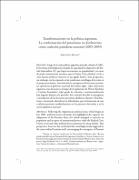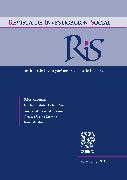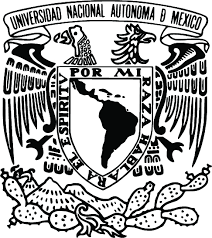Please use this identifier to cite or link to this item:
https://ru.iis.sociales.unam.mx/handle/IIS/5316| Title: | Transformaciones en la política argentina. La conformación del peronismo no kirchnerista como coalición partidaria nacional (2005-2009) |
| Authors: | Mauro, Sebastián |
| Keywords: | coaliciones politicas sistema de partidos peronismo political party system Peronism |
| Publisher: | Universidad Nacional Autónoma de México, Instituto de Investigaciones Sociales |
| Series/Report no.: | Revista de Investigación Social;Año VIII, Número 12 |
| Issue Date: | 2011 |
| Abstract: | Luego de la crisis política argentina iniciada a finales de 2001, la literatura politológica ha señalado la capacidad de adaptación del Partido Justicialista (PJ), que logró incrementar su popularidad y su cuota de poder institucional, mientras que la Unión Cívica Radical (UCR) y otras fuerzas políticas entraron en un agudo declive. Esta perspectiva, sin embargo, no ha reparado en las tendencias centrífugas de la crisis en el propio peronismo, incentivando la emergencia de facciones peronistas opositoras al gobierno nacional del mismo signo. ¿Qué trayectoria siguieron estas facciones a lo largo de los gobiernos de Néstor Kirchner y Cristina Fernández? ¿Qué grado de cohesión e institucionalización han logrado durante este periodo? Este artículo describe la emergencia y articulación de las facciones peronistas disidentes durante el kirchnerismo, intentando identificar las dificultades para la formación de una
coalición peronista antikirchnerista en los procesos electorales y en la arena legislativa nacional. Abstract: Following the Argentinean political crisis, which began in late 2001, political science literature has highlighted the capacity for adaptation of the Peronist Party (PJ) which managed to increase its popularity and its quota of institutional power, while the Radical Civic Union (UCR) and other political forces experienced a sharp decline. This perspective, however, has overlooked the centrifugal trends triggered by the crisis within Peronism itself, encouraging the emergence of Peronist factions opposing the national government of the same sign. What path did these factions take during the governments of Nestor and Cristina Kirchner? What degree of cohesion and institutionalization have they achieved during this period? This article describes the emergence and coordination of the dissident Peronist factions during Kirchnerism, attempting to identify the difficulties in forming an anti-Kirchnerian Peronist coalition in the electoral processes and the national legislative arena. |
| URI: | https://ru.iis.sociales.unam.mx/handle/IIS/5316 |
| Type: | PeerReviewed Artículo |
| Rights: | https://creativecommons.org/licenses/by-nc-sa/4.0 |
| metadata.dcterms.bibliographicCitation: | Mauro, Sebastián (2011). "Transformaciones en la política argentina. La conformación del peronismo no kirchnerista como coalición partidaria nacional (2005-2009)". Revista de Investigación Social 12 (verano): 9-38. |
| Appears in Collections: | Revista de Investigación Social |
Files in This Item:
| File | Description | Size | Format | |
|---|---|---|---|---|
| 01_mauro.pdf | Artículo | 172.7 kB | Adobe PDF |  View/Open |
| ris12_portada.jpg | Portada | 460.8 kB | JPEG |  View/Open |
Items in DSpace are protected by copyright, with all rights reserved, unless otherwise indicated.
